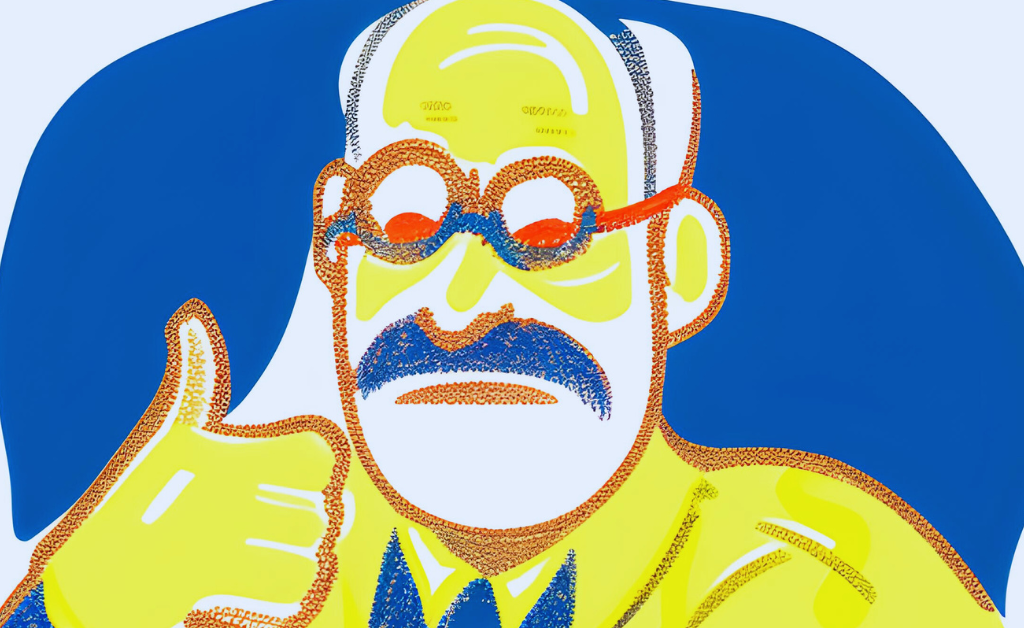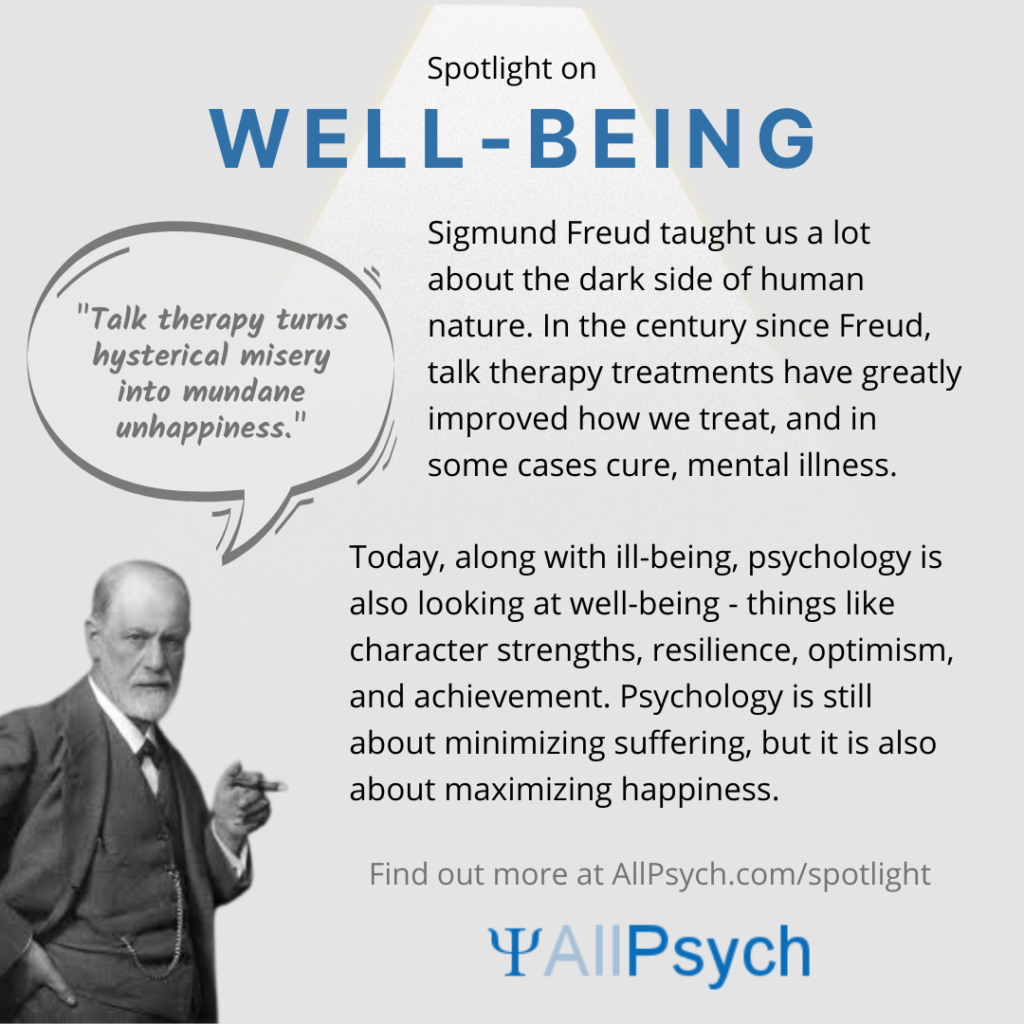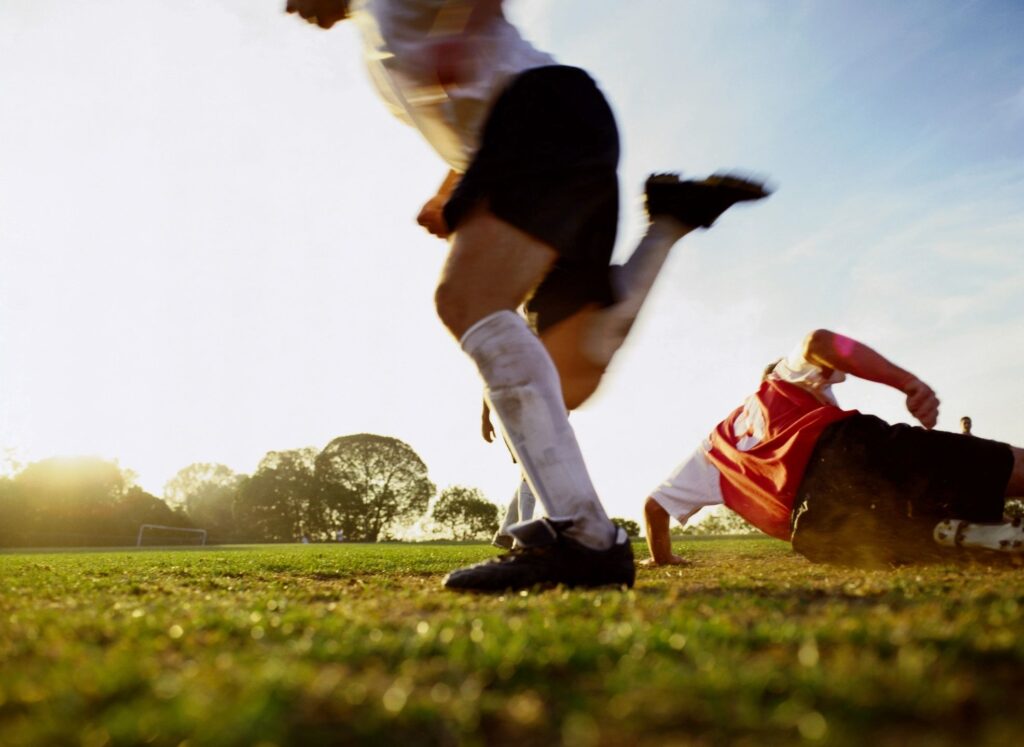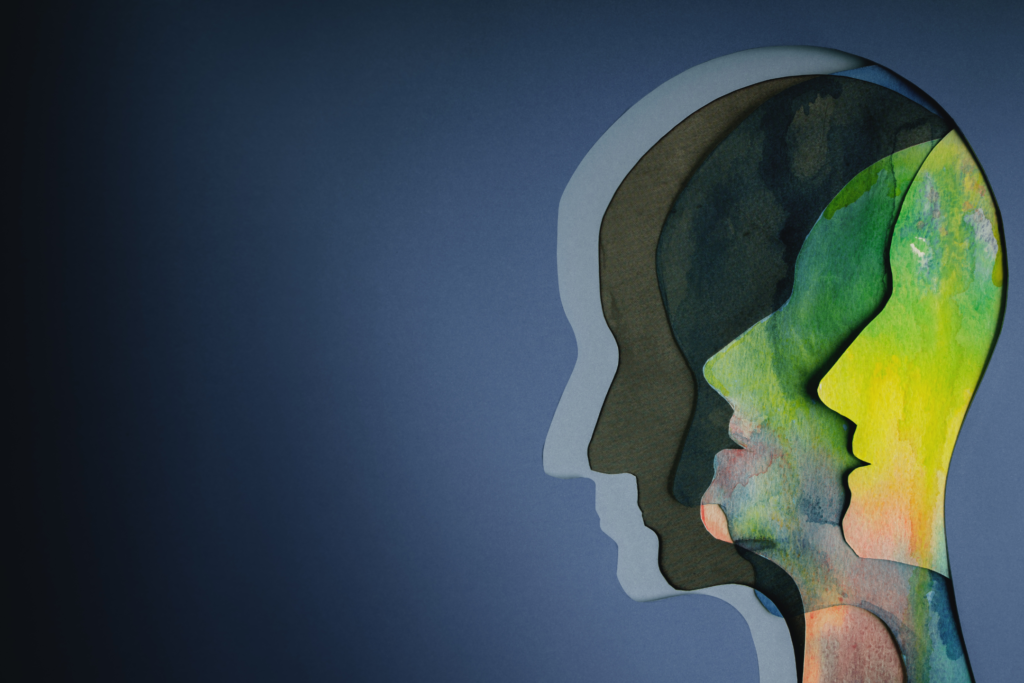Search results for: freud
Twelve Things that Sigmund Freud Got Right
Sigmund Freud continues to be an influential figure in the field of psychology for his development of psychoanalysis, a theory and treatment approach focusing on the psychological development of mental illness. His work involved exploring the unconscious mind and the impact of early experiences, particularly those related to sexual development and parental relationships, on human…
Read MoreSpotlight on Well-Being: We’ve Come a Long Way since Freud
Sigmund Freud Just as the world was preparing to enter the 20th century, Sigmund Freud was preparing to shock everyone with talk of unconscious drives focused on sex and aggression. He published Interpretation of Dreams in 1899 and started the professional psychology movement. 100+ years later psychology as a discipline has shed light into the…
Read MoreWhat an Amazing Coincidence Tells Us About Schadenfreude
In December 2015, researchers asked 59 Argentinian adults to consider this description of a scenario featuring Argentina’s long-time football rival, Brazil. They meant it as a hypothetical exercise: Brazil and Peru are playing a football match. The match is decisive for the both teams’ chances of advancing to the next round. Brazil will make it…
Read MoreSigmund Freud
Sigmund Freud 1856-1939 Sigmund Freud was born in the Austro-Hungarian Empire in 1856. His family moved to Vienna when he was four, where he spent the majority of his life. Although his family was Jewish, Freud considered himself an atheist. Rumor has it that he was his mother’s favorite of the seven children. As the…
Read MoreChapter 5: Psychodynamic & Neo-Freudian Theories
Section 1: Introduction to Neo-Freudian Theory Dissention in the Ranks While Sigmund Freud is considered the father of psychoanalysis, and by many, the father of modern personality theory, he was also very strict and stubborn about his beliefs. As a respected scholar, he developed a following of well known theorists and psychologists in his psychoanalytic…
Read MoreChapter 4.4: Freud’s Ego Defense Mechanisms
Ego Defense Mechanisms We stated earlier that the ego’s job was to satisfy the id’s impulses, not offend the moralistic character of the superego, while still taking into consideration the reality of the situation. We also stated that this was not an easy job. Think of the id as the ‘devil on your shoulder’ and…
Read MoreChapter 4.3: Freud’s Stages of Psychosexual Development
Sigmund Freud (1856-1939) is probably the most well known theorist when it comes to the development of personality. Freud’s Stages of Psychosexual Development are, like other stage theories, completed in a predetermined sequence and can result in either successful completion or a healthy personality or can result in failure, leading to an unhealthy personality. This…
Read MoreChapter 3.5: Freud’s Ego Defense Mechanisms
PSYCHOLOGY 1013.5 Freud’s Ego Defense Mechanisms Psychology 101 Contents1: How to Learn Psychology – 1.1: Influence of Research on Psychology – 1.2: Experimental Research – 1.3: Types of Research 2: Biopsychology – 2.1: Neurotransmitters – 2.2: The Brain & Nervous System 3: Intro to Development, Personality & Stage Theories – 3.1: Motor & Cognitive Development…
Read MoreChapter 3.4: Freud’s Structural & Topographical Model
PSYCHOLOGY 1013.4 Freud’s Structural and Topographical Models Psychology 101 Contents1: How to Learn Psychology – 1.1: Influence of Research on Psychology – 1.2: Experimental Research – 1.3: Types of Research 2: Biopsychology – 2.1: Neurotransmitters – 2.2: The Brain & Nervous System 3: Intro to Development, Personality & Stage Theories – 3.1: Motor & Cognitive…
Read MoreChapter 3.3: Freud’s Stages of Psychosexual Development
PSYCHOLOGY 1013.3 Freud’s Stages of Psychosexual Development Psychology 101 Contents1: How to Learn Psychology – 1.1: Influence of Research on Psychology – 1.2: Experimental Research – 1.3: Types of Research 2: Biopsychology – 2.1: Neurotransmitters – 2.2: The Brain & Nervous System 3: Intro to Development, Personality & Stage Theories – 3.1: Motor & Cognitive…
Read More





